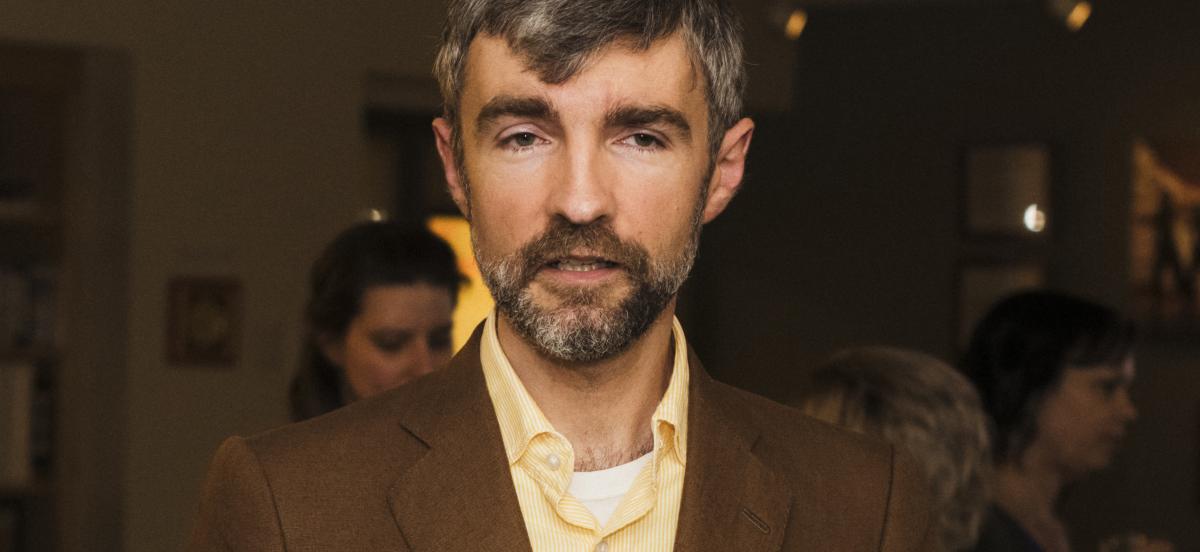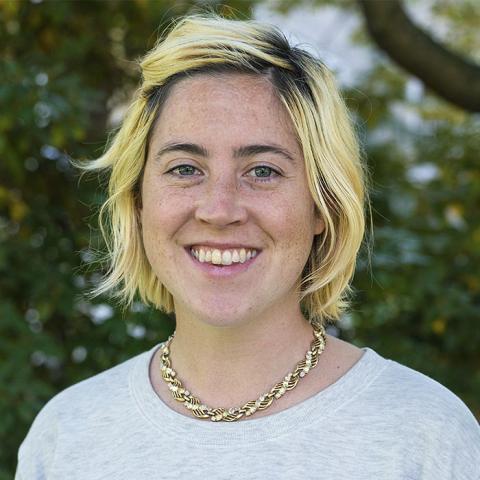Professor Thomas Donahue Brings Transnational Focus to New Role with CPGC

Photo by Holden Blanco '17.
Details
Thomas Donahue, visiting assistant professor of political science, will begin a two-year pilot role as the Associate Director for Curricular Connection and Innovation this semester, a reimagination of the previous Academic Director position.
The leadership of the Center for Peace and Global Citizenship will have a renewed focus on connections with the College curriculum as Professor Tom Donahue joins the steering committee at the start of the 2020-2021 academic year. As the inaugural Associate Director for Curricular Connection and Innovation, Donahue will build on contributions from previous Academic Directors including, most recently, Associate Professor of Peace, Justice, and Human Rights Jill Stauffer and Professor of Economics Anne Preston.
Donahue’s new role connects the CPGC and its steering committee with the Transnational Working Group he’s been part of over the last couple of years.
“It is good news for a number of reasons,” says CPGC Executive Director Eric Hartman, “but central among them is that Tom’s work with the Transnational Initiative [on campus] will have a through-line to our work with experiential education and off-campus partnerships. Working with Tom, along with other members of the working group and broader faculty, should advance our intentionality on curricular connectivity and the missional work of investigating and activating what it means to live ethically in an interdependent world.”
Several Haverford College faculty members have been organizing the Transnational Initiative, connecting a diversity of academic programs across the Tri-Co.
“For the past three years, I've been involved in that project, which is now led by Professor Jim Krippner, who'll be joining me on the CPGC steering committee this year,” Professor Donahue says. “We see the CPGC as a natural partner in exploring transnational perspectives, because of its focus on educating for global citizenship. So we look forward to exciting collaborations with the CPGC.”
Understanding transnational perspectives on global injustices is central to Donahue’s research. This lens can be critical to understanding how to develop efforts to dismantle white supremacy on our own campus and in our own communities.
“To challenge injustices here and now, you need to know where they come from and how they work,” he says. “You can protest against a police officer's wrongly assaulting an innocent civilian. You can even get the officer fired and criminally charged . But if the officer's assault is driven by a global system of white supremacy, then firing the officer won't stop further such assaults. Nor will it stop other racialized harms.”
In his book Unfreedom for All: How the World's Injustices Harm You, Donahue argues that “we won't be able to abolish racial injustice unless and until we study the systems that create and perpetuate the injustice.” Transnational inquiry offers a framework for studying the systems that have created and exacerbated anti-Blackness and white supremacy across the globe.
“[It explores the] race-thinking that arose out of particular contacts made across national borders some 500 years ago; how people 1000 years ago arguably never thought in terms of ‘races,’ and how only a few changes to the patterns of global exchanges would dismantle global white supremacy. Transnational inquiry shows us how global white supremacy and other racial injustices are not inevitable, but contingent. They are a matter of choices and exchanges made across national borders, and therefore we could choose and exchange otherwise.”
There’s exciting new work being done by Black scholars on the topics of Black diasporas and Black liberation that are also challenging conventional notions of global history.
“One scholar who I think has broken important new ground in this area is the philosopher Olufemi Taiwo of Cornell University. Taiwo's book How Colonialism Preempted Modernity in Africa argues that Africa was about to become modern before Europeans intervened in Africa through fostering the slave trade and later conquests. Another issue that's receiving growing attention is the involvement of Africans in the Indian Ocean world, especially in the early modern period. An interesting book in this vein is Omar Ali's Malik Ambar: Power and Slavery across the Indian Ocean. This vein of scholarship explores how great an impact Africa had on the Indian Ocean world, and how Europe was just one player among many in Africa's history at this time. In doing so, it challenges current tendencies to think of Europe as the center and Africa as the periphery.”
As the CPGC prepares for a new year of programming and engagement on and off campus, it will do so with the guidance of Professor Donahue as well as three additional incoming steering committee members: Assistant Professor of Anthropology Juli Grigsby; Edmund and Margiana Stinnes Professor of Global Studies and Professor of History Jim Krippner; and Assistant Professor of Anthropology and Environmental Studies Josh Moses.




